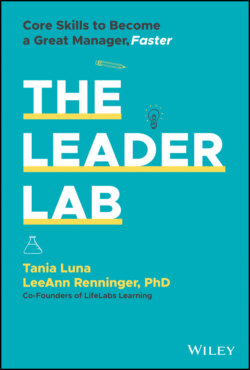Читать книгу The Leader Lab - Tania Luna - Страница 41
Practice Station
ОглавлениеMia has decided to hire a new person, but getting input from her team members is harder than she expected. Take a look at the comment below about one of the candidates, and mentally (or physically) underline the blur words you spot:
I don't recommend hiring this candidate. She was closed-off and standoffish the entire time. The other candidates we interviewed were much warmer. I wouldn't even suggest inviting her to the next interview round. The other candidates were also much more qualified.
Which words in this example are blurry? Here are the biggest blur words:
I don't recommend hiring this candidate. She was closed-off and standoffish the entire time. The other candidates we interviewed were warmer. I wouldn't even suggest inviting her to the next interview round. The other candidates were also more qualified.
Notice how easy it could have been for Mia to leave the comment blurry and move onto the next candidate? Our brains are wired to fill gaps with snap interpretations. When we hear words like “standoffish,” “warm,” and “qualified,” our brains make instant assumptions about what these words mean. We take for granted that we are talking about the same behaviors when, in reality, we might have vastly different meanings. For example, when we asked three people to Deblur a term as simple as “warm,” we heard:
| Deblurring “Warm”: Three Distinct Definitions | ||
| They smile often and say complimentary things. | They listen closely and ask you questions. | They acknowledge people who helped them. |
How does Deblurring help managers become better faster?
